Derek Milman is the author of Scream All Night (HarperCollins) and Swipe Right for Murder (Little Brown / Jimmy Patterson). A graduate of Yale Drama School, Derek has performed on stages across the country, and appeared in numerous TV shows and films, working with two Academy Award-winning film directors. He lives in Brooklyn.
I had the opportunity to interview Derek, which you can read below.
First of all, welcome to Geeks OUT! Could you tell us a little about yourself?
Sure! I grew up in the suburbs of New York. I started publishing a humor magazine (kind of like an underground zine) and selling it in neighborhood stores when I was around thirteen years old. I studied theater and writing at Northwestern University. I wrote a full-length play in a specialized creative writing program while in school which was staged in NYC the following year. I studied acting at the Yale School of Drama, and for several years worked in theater, TV, and film. I started writing YA fiction around 2012 as a way of getting some creative control back into my life, and to escape the frustrations of the audition grind; my debut was published in 2018. My second YA novel came out in 2019 with Little Brown, and after a five year hiatus, I’m glad to return with A Darker Mischief, published by Scholastic.
What can you tell us about your latest book, A Darker Mischief? What was the inspiration for this story?
It was inspired by my time in drama school and struggling against flaws in a storied institution (and realizing they existed). Nothing is what it seems in dark academia, but this can be true to an extent in real life. Dark academia reflects a lot of growing cynicism regarding corruption seeping in to revered institutions in American society that we all thought were safe from moral decay. When a friend gave me a binder containing materials pertaining to his time in a secret society at Yale, I realized there was a lot of fascinating backstory, and esoteric details, that could inspire a sprawling romantic thriller. I just needed time to work out the details of the plot, the characters, and the intricacies of the romance itself.
In the end, a lot of different elements came together to formulate what A Darker Mischief ultimately became. The story concerns a kid named Cal who is from a poor family in a small town in Mississippi. He has a pretty complicated, checkered past (most of my MCs do!) and when he wins a scholarship to an elite Connecticut prep school, he’s totally a fish out of water there. He experiences severe isolation and homesickness. All that changes, of course, when he learns of the existence of a centuries-old secret society and meets a fellow sophomore transfer student named Luke Kim, who is a troubled street artist (and jock). As the two boys rush the secret society, they fall in love. Cal knows acceptance into the Society means the ultimate acceptance—and his key to survival at Essex. But nothing is quite what it seems. As Society’s escalating challenges and demands become increasingly diabolical, Cal has to decide how much he’s willing to sacrifice of himself to save everything (and everyone) he loves—and move up in the world, breaking free of his past.
As an author, what drew you to the art of storytelling, specifically young adult fiction and dark academia?
I read a lot of books as a kid and loved movies as well. But my acting and playwriting background definitely helped lend itself to storytelling in the form of long-form fiction, since I was already doing it, in different ways, from a relatively young age. Especially training as an actor and learning the importance of conflict and stakes. And building psychological profiles. I read a lot of heavy novels as a young kid, and I read all of Salinger’s novels which implanted this visceral sense of a young voice, in my writerly consciousness, coming to terms with the world around them. When I was cast in a (probably illegal) production of Franny & Zooey in college, playing Zooey, something about that experience transformed me in ways I haven’t always been able to fully quantify, but it definitely opened up a vessel in my creative core, or whatever that part of you is, that allowed me to lead with voice-forward narratives, many featuring younger characters.
As for Dark Academia, that was an accidental collision, since this was a genre that took shape around me, and became somewhat trendy, during the seven years it took to write and edit A Darker Mischief. I had never heard of it back in 2017 when I started writing this book, originally titledd With Love & Mischief, but I was a longtime fan of Donna Tartt, whose Secret History many consider to be the genre’s official blueprint.
How would you describe your creative process?
Pretty shape-shifting, with few constants. A lot of controlled chaos. I like to hand write ideas in notebooks in bustling cafés and coffee shops. I draft in various stages, on a computer at home, using Word. I tend to immerse myself in a writing process, so it has a sort of method acting parallel. I read books related to the world I’m writing about and the subject matter; I’ll watch films and look at related visual art. I even listen to certain types of music for further inspiration. I crave that total immersion, it helps my process.
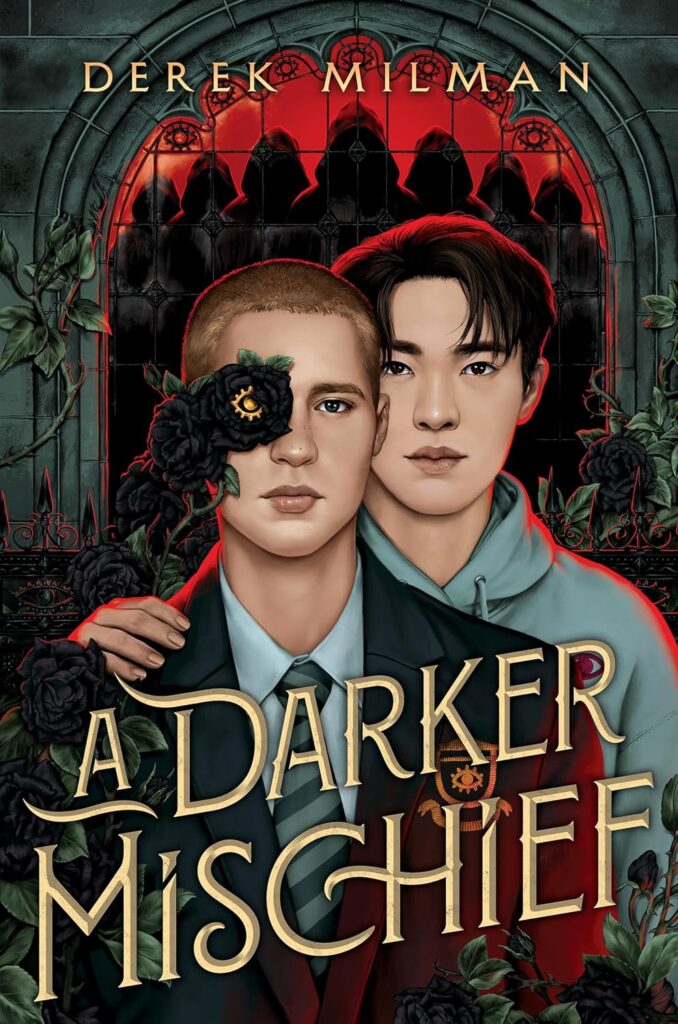
Growing up, were there any stories in which you felt touched by/ or reflected in? Are there any like that now?
I remember being especially moved by A Prayer for Owen Meany by John Irving, Narcissus and Goldmund by Herman Hesse, Giovanni’s Room by James Baldwin, and While England Sleeps by David Leavitt, when I was younger. I haven’t had that gut punch reaction to fiction in a long time. It might just be that I’m getting older, reading different types of books, or those types of stories simply don’t exist anymore at that emotional level for me, although I’ve certainly admired a lot of books I’ve read recently.
As a writer, who or what would you say are some of your greatest creative influences and/or sources of inspiration in general?
Photography by William Eggleston and Gregory Crewdson. Paintings by Eakins, Sargent, Turner, Bellows, and Hopper. I love Ocean Vuong’s poetry, although I know he is not for all tastes. I’ve long admired the French symbolist works of Arthur Rimbaud, and high octane novelists from my childhood like Michael Crichton, Anne Tyler, Bret Easton Ellis, and John Irving. I love Hemingway’s sentence structures, and the mechanics of his writing; I feel like he did to fiction what Brando did to acting, just removed a lot of Vaseline on the lens, so to speak. I adore Nabokov, Donna Tartt, Fitzgerald’s romanticism, and recent queer books by Micah Nemerever and Douglas Stuart. Jean Beagin, Kevin Wilson, Patrick deWitt, and Rufi Thorpe are writing with a lot of razor sharp humor, almost to a surreal degree, and I love their recent works. Boards of Canada is a fascinating and complex psychedelic electronica band that soundtracks much of my life, especially when I’m writing. There’s a lot of filmmakers that have had a huge influence on me as well: Gregg Araki, Gus Van Sant, Wong Kar-wai, Mel Brooks, Claire Denis, Albert Brooks, François Truffaut, and Jean-Luc Godard to name a few.
What are some of your favorite elements of writing? What do you consider some of the most frustrating and/or difficult?
I enjoy building characters, and I love when themes emerge or introduce themselves, organically, within the flow of the story, as it’s all coming together. I enjoy later stages of editing, mostly line edits, when the blueprint of the book has mostly been laid down and you’re just perfecting and polishing what’s already there; I enjoy that process a lot. As with most writers, the most frustrating or difficult parts of the writing process are when you realize a major chunk of text, a major plot point, or even a character, are just not working within the larger context of the story, and you’re not sure how to fix it right away (which can take a degree of patience). That can keep me up at night.
Aside from your work, what are some things you would want others to know about you?
I’m a music nerd, I really like going to the movies in the middle of the day (when I can), I love animals, I love seaside towns, and I know how to swordfight.
What’s a question you haven’t been asked yet but that you wish you were asked (as well as the answer to that question)?
Do you know how to swordfight? YES I DO.
What advice might you have to give for aspiring writers?
To read widely, in and out of your chosen genre, expose yourself to new experiences, and other mediums of art you may not be familiar with, and be prepared to invest a lot of time into developing your craft. Writing is a slow process. Publishing is even slower.
Are there any other projects you are working on and at liberty to speak about?
Yes! A YA mystery called Stage Fright, about the daughter of a Hollywood PA to a famous movie star-turned-wellness guru. After accidentally burning down her ex’s house, she has to get out of town fast and gets enrolled in a private school for influencers and celebrity children at the height of the pandemic—to ostensibly watch over this movie star’s daughter. But at a lavish mansion party, she’s framed for the murder of the son of a movie studio exec. This is all while she’s stage managing a disastrous production of A Streetcar Named Desire.
Year of the Monster is an adult queer Frankenstein re-telling involving two twins, cellular rejuvenation technology, and a strange seaside town. Johnny and the Jewels is a rom-adventure about an Italian kid from Long Island and his Jewish boyfriend, Asher, who steals a rare gem from his father’s diamond district store, so they can run away to Miami together—but instead they’re hunted down by a gang of jewel thieves while Johnny is babysitting a bunch of hellacious children. It’s basically Adventures in Babysitting meets Uncut Gems.
Finally, what LGBTQ+ books/authors would you recommend to the readers of Geeks OUT?
I’ve named a few specifics above, but as for some other LGBTQ+ authors to look out for (and I focused this almost exclusively in YA), I highly recommend checking out: Abdi Nazemian, Brian D. Kennedy, Julian Winters, Page Powars, Jason June, Camryn Garrett, Leah Johnson, Natasha Ngan, Caleb Roehrig, Benjamin Alire Sáenz, Angelo Surmelis, Matthew Hubbard, Anthony Nerada, Adam Sass, and Mason Deaver.
Header Photo Credit Emilio Madrid

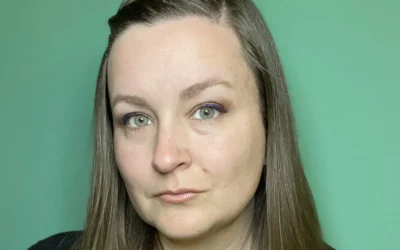
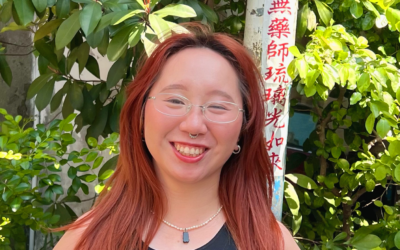
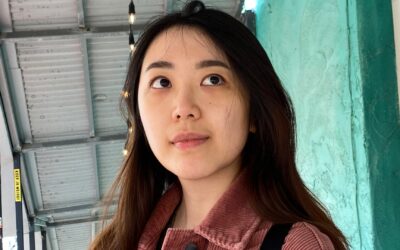
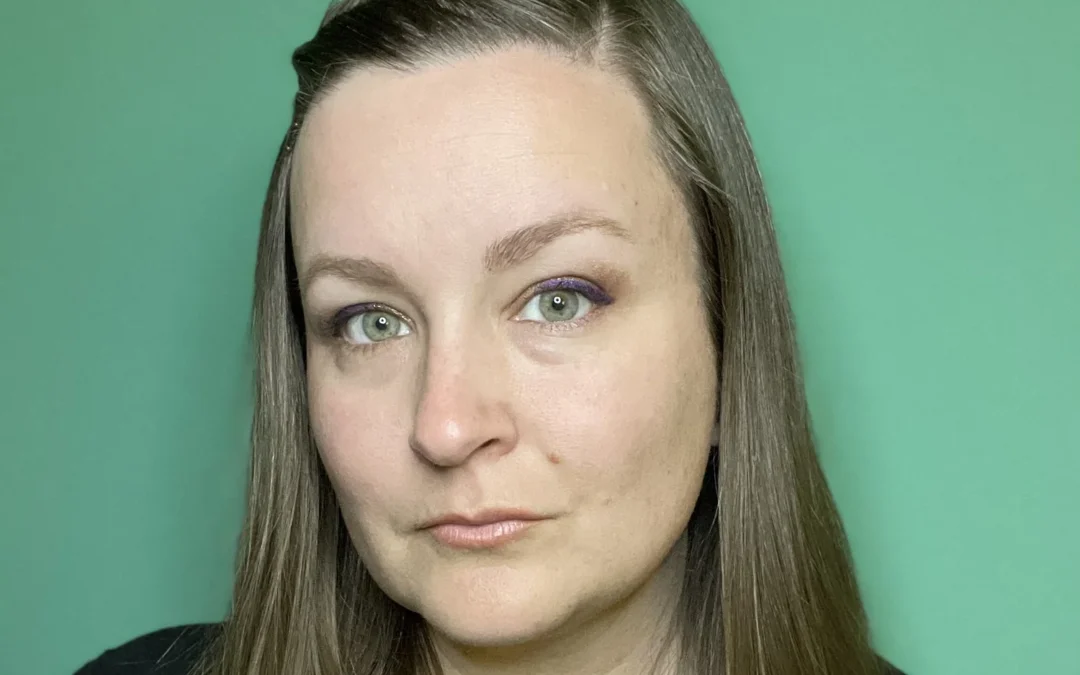
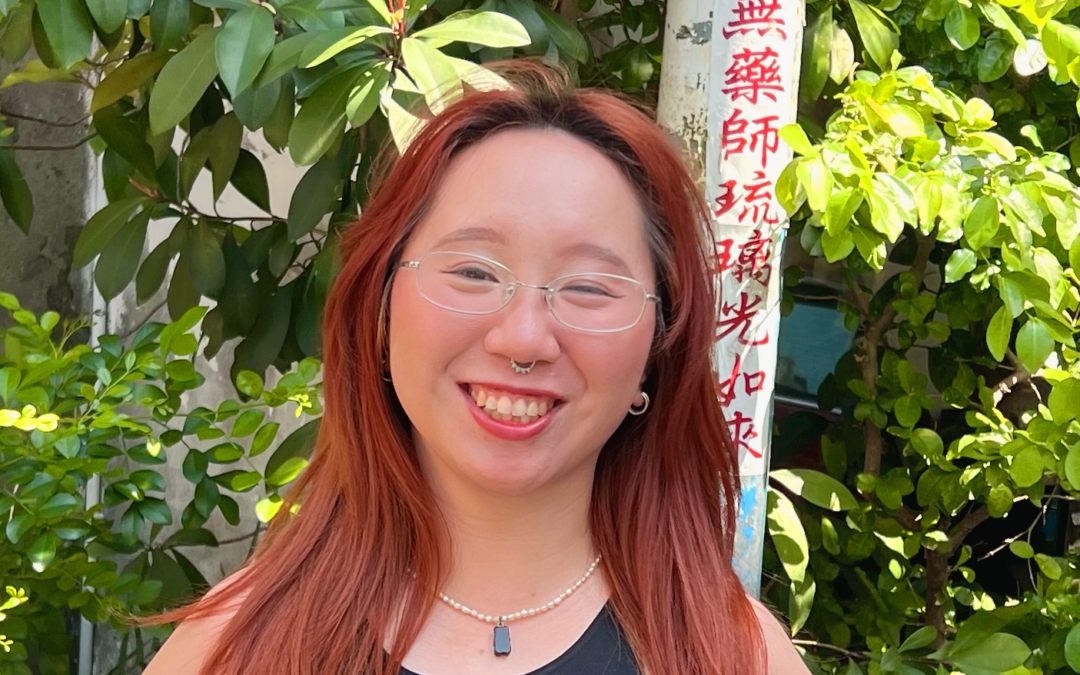
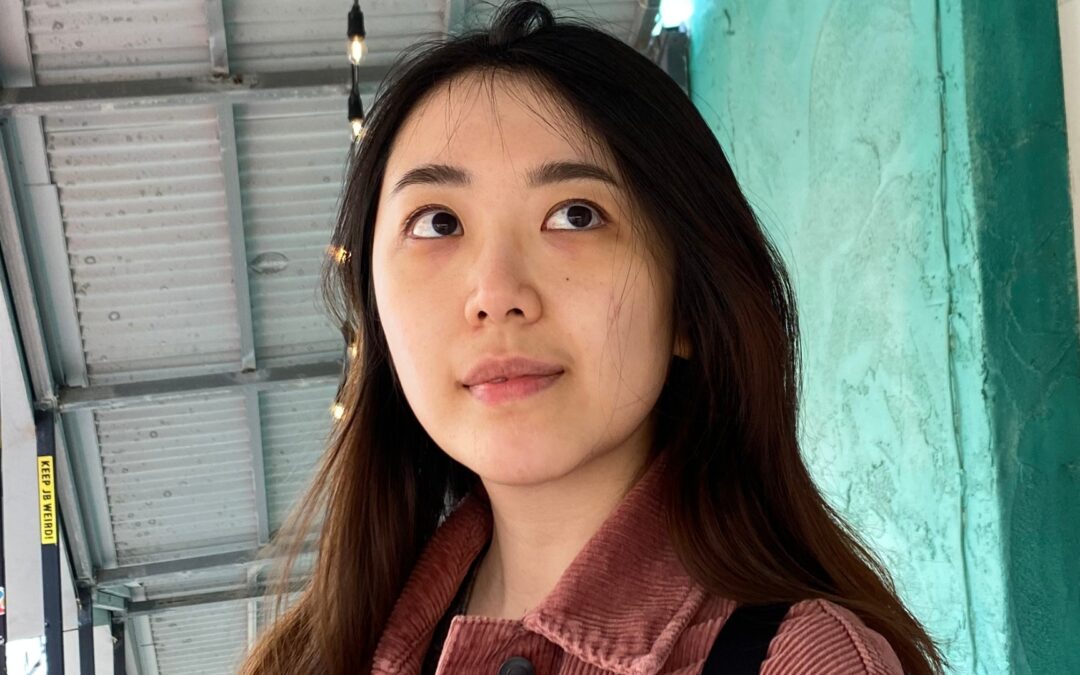
0 Comments